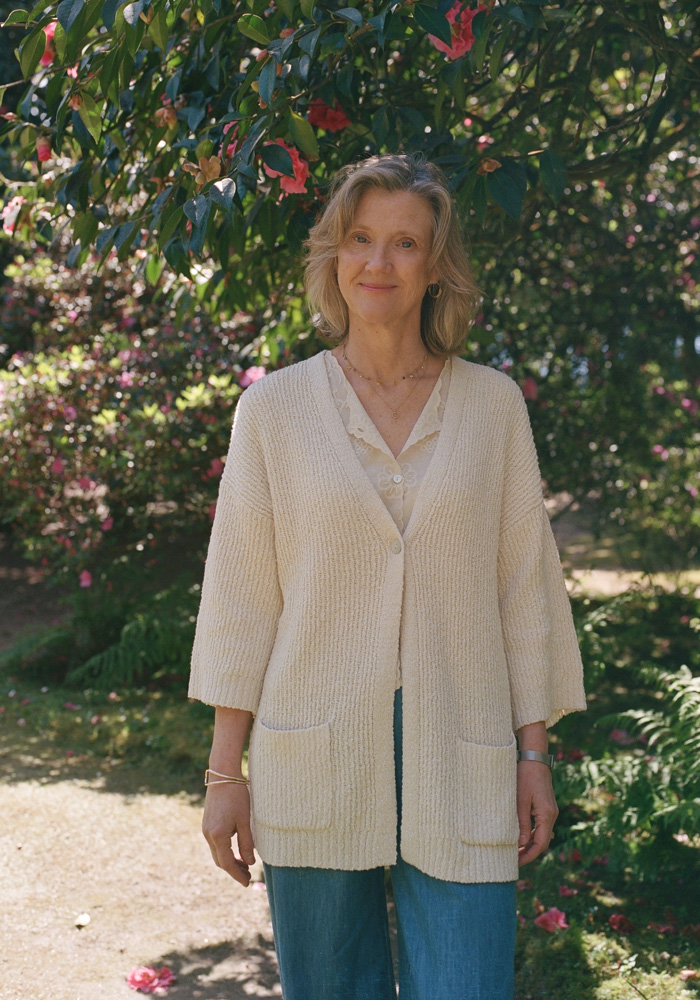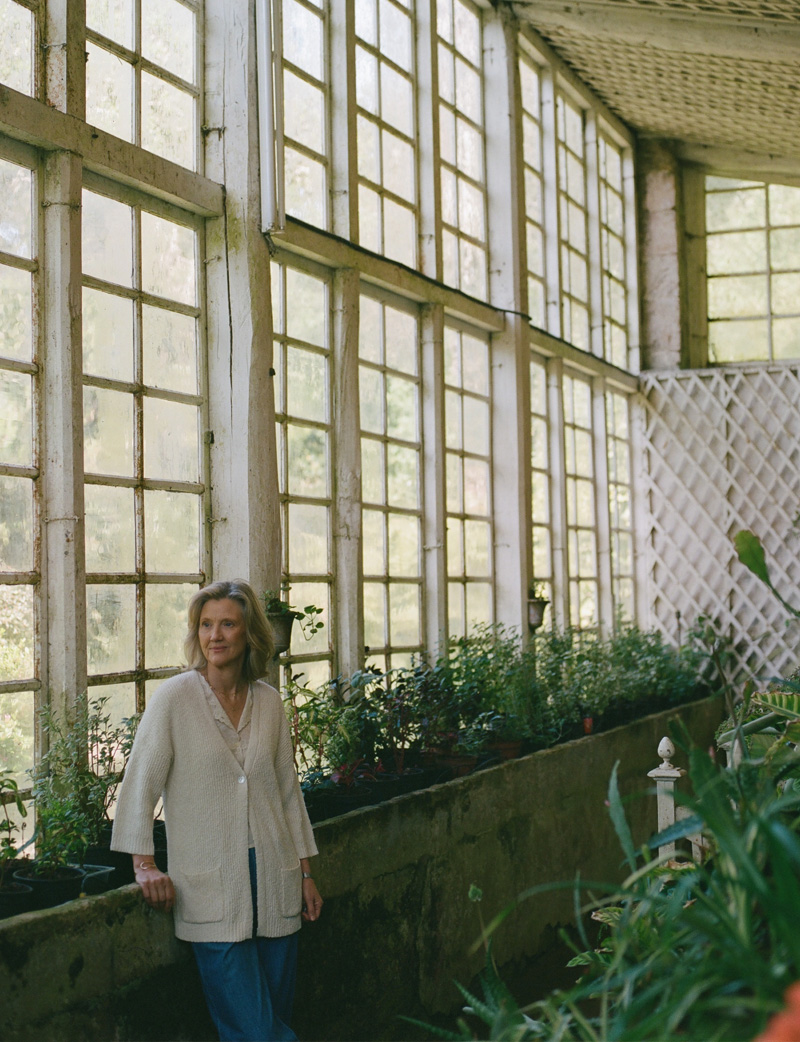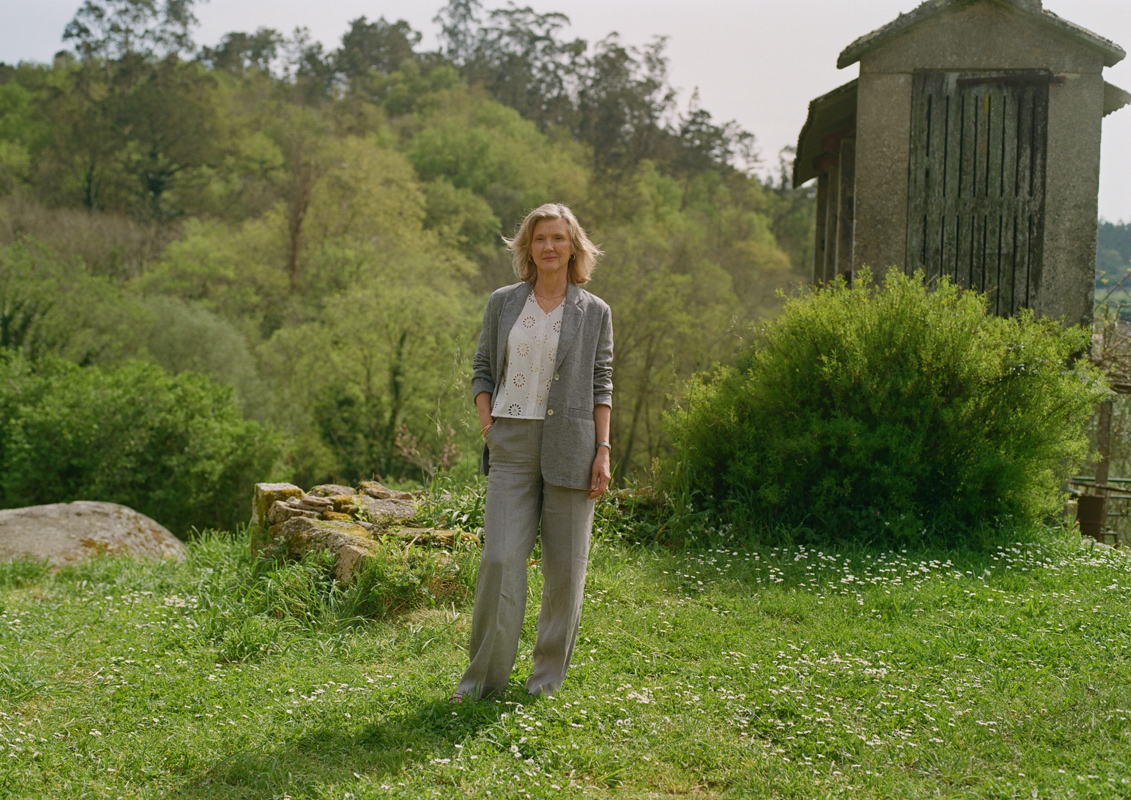- Inicio/
- Editoriales/
- Cristina Sánchez-Andrade

From another point of view
Cristina Sánchez-Andrade
Cristina Sánchez-Andrade.
Writer
Thanks to Cristina, you’ll discover the magic of rural Galicia, featuring strong women and brimming with unvarnished stories that will shake you to your core. You can almost smell her books and you most certainly can feel her stories. This marvellous meeting couldn’t possibly take place at any other time except on World Book Day or in any other place except Galicia.


NT — How would you define your work?
Cristina — Many describe it as “magical realism with a distinctively Galician flavour” and I guess I’d agree. At the end of the day, magical realism was born in Galicia (with authors such as Cunqueiro or Anxel Fole, for example) before the Latin American boom. My novels are always set in Galicia and there’s a significant sensory aspect, particularly smell. I try to make the reader feel as if they were right there in the story through the five senses. Then, there are recurring themes, as with all writers. In my case, the protagonists are always women, and you’ll always find secrets, vulnerability, memories, motherhood, teeth, animals, the land… I think my work or my characters are always sinister and there’s a disturbing element to what I write.
NT — Which authors/works had an impact on you when you started writing?
Cristina — There’s a book I always mention because it definitely made a lasting impression on me: El gran cuaderno (‘The Notebook’) by Ágota Kristóf. When I started writing, I read a lot of Thomas Bernhard, Lobo Antunes, Clarice Lispector, Fleur Jaeggy, Herta Müller, Italo Calvino, Gamoneda…


NT — Do you think that you were destined to write or was it something you fell into over time? And What advice would you give a young Cristina who wants to be a writer?
Cristina — I think that whoever has a calling can’t avoid it. Although I always knew that I liked reading and writing, I did other things for a very long time. When I was young, I thought that being a writer was a bit of a fantasy, and that there was no way I could make a living from writing. I told myself that being a writer wasn’t a realistic goal. And it’s true, you can’t make a living from living, or at least not when you’ve got children to raise. But, the truth is, everything has always been leading me to writing. I had other jobs that weren’t too bad, but at the back of my mind, I was always trying to find time to write, in getting home as soon as possible to get back to writing the novel that I was currently working on. Writing was – and still is – what made me feel happiest. I felt awful when I stopped. So, I’m still doing other things (such as teaching classes in literature, which I love), because I do have to make a living after all, but I make writing a priority. As for advice I’d give a young Cristina: don’t ever lose your way. Writing has its ups and downs, it’s not about success. The important thing really is to have fun writing. Don’t be in a rush, and read all the books you can.
NT — Most of your protagonists are women with tough lives. Lucha Amorodio and the Inviernas sisters come to mind. What drives you to create these types of characters? What’s interesting about them?
Cristina — I really don’t know why I come up with these kinds of female characters. I always say that I don’t choose them; instead they choose me. It’s similar to what happens with dreams: I don’t get to decide about what to dream about. I only find out what I dreamed about once I wake up. The same thing has happened with nearly all these female protagonists: I start hearing them in my head, they tell me things, and somehow, they fight to come into being. As soon as I give them a voice, the character emerges. And I only have to keep listening to them. I think what I find most interesting about them is their vulnerability, their contradictions, their anonymity, their meanness, their smallness.


NT — Upcoming projects you’re working on.
Cristina — My novel Las lagartijas huelen a hierba (‘Lizards Smell of Grass’), which I wrote 25 years ago, has just been republished by the lovely publisher La Navaja Suiza. Exciting times! While rereading it, I realised it was like I was reading someone else’s work. I started editing, but then I thought that I had to respect that version of me. It was a very odd yet wonderful feeling. My new novel will be released by Anagrama in 2025. It’s titled Habitada (‘Inhabited’) and it’s about a local Galician legend of a case of corpo aberto (‘open body’), i.e. a kind of possession. The spirit of a Galician clergyman who died in Havana enters this woman. The girl starts talking with a Cuban accent in a male voice; she also knows a lot about liturgy and philosophy. I had a really great time with it. The first part is from her point of view while the second part is from the clergyman’s. As it’s based on a real-life case, I sought to understand how a woman could transform into a man (at least that was what it looked like). The people of the time (in the 1920s) came to see her, listen to her, and asked her to heal them. There was an ongoing parade of doctors, the press of the time, theologists through her house… So, they must have seen something in her. It’s a fascinating story.

NT — What would you like your work to be known for?
Cristina — I’ve always sought to bring back oral tradition, which is the most authentic aspect of Galician culture. All the stories my Nan told me are in my books and through them, I showcase a way of life (village life, essentially), a connection with the language (although my books are in Spanish, there are expressions and constructions that are very much Galician), with the culture and simple ways of life. I’d like my novels to help to ensure that the rural way of life is not forgotten.
NT — A book
Cristina — It’d be almost impossible to answer that question, as I’ve literally got thousands. But I’ll say Los girasoles ciegos (‘The Blind Sunflowers’) by Alberto Méndez.
NT — A movie.
Cristina —‘In the Name of the Father’ (Jim Sheridan).
NT — A place.
Cristina — The Corrubedo Lighthouse.
